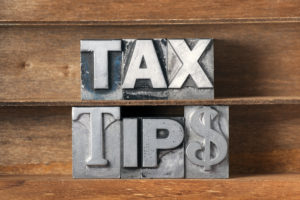Why Are Your Property Taxes So Darn High?
While the majority of people pay the most attention to the taxes they see regularly, i.e. income and sales tax, there are other taxes that cost you a lot of money that you may tend to forget about. One of those taxes that cost a lot, but that kind of goes unnoticed is property tax. In fact, depending on where you live and how much property you own, your property taxes can be huge. For some people, like residents of New Jersey for example, property taxes seem extreme.
A 2014 study by Monmouth University found that 26 percent of New Jersey residents said that they were “very likely” to move to a different state, with the most common reason being the high price of housing and property taxes – with property taxes being the main culprit. Residents of Connecticut and New York are also often on the list of highest property taxes. Why is that some locations have much higher property taxes than others?
There are several reasons that property taxes vary from state to state and city to city. Here are just a few of the main causes:
- State employees make a lot of money – if your state pays its workers well, like New Jersey does, then chances are your property taxes are higher in order to help foot that bill.
- Not Much Tourism – if your state lacks a lot of out-of-town visitors then property taxes could be higher to make up for lost revenue.
- Good schools – in order to have the best schools you have to pay for the best teachers and education services. The funds for those expenses often come from property taxes.
- Valuable property – no matter where you live, if you have a valuable home then you will almost assuredly pay more in property taxes. That’s because your property tax is based on the assessed value of your home times the local tax rate. A higher value home equals higher property taxes.
There are other possible reasons for high property taxes, but these are some of the most common. If you want to avoid outrageous property taxes, then your best bet is to simply move to a state where property taxes are lower.
How to Choose an Investment Advisor
How to Choose an Investment Advisor Finding a reliable source for investment advice has always been a challenge. It’s especially difficult in today’s investment environment. There’s no shortage of places to turn for advice. The shelves at the bookstores are filled with “experts” offering their perspectives on how and where to invest. The financial pages…
Here’s a 15-item checklist of low-hanging tax tips for financial advisors
Here’s a 15-item checklist of low-hanging tax tips for financial advisors It’s tempting to put April 15th behind you, but here’s how you can plan for next year: With April 15th behind us, many people put tax issues onto the back burner until they’re staring at the next deadline. Alan Olsen, managing partner at Greenstein,…
How To Stay In Control Of Your Company
How To Stay In Control Of Your Company Have you ever watched the popular ABC program Shark Tank? This “reality” show allows entrepreneurs and business owners to pitch their business ideas or products to five extremely wealthy investors who are successful entrepreneurs in their own right. The panel of “shark” investors even includes Dallas Mavericks’…
Family Limited Partnerships: Pros and Cons
Family Limited Partnerships: Pros and Cons A new approach to managing family wealth, the family limited partnership (FLP) has become popular in recent years. As an alternative, a Family Limited Liability Company may be used with similar results. These techniques offer several possible advantages: Family Limited Partnerships • consolidation of assets for convenient management; •…



